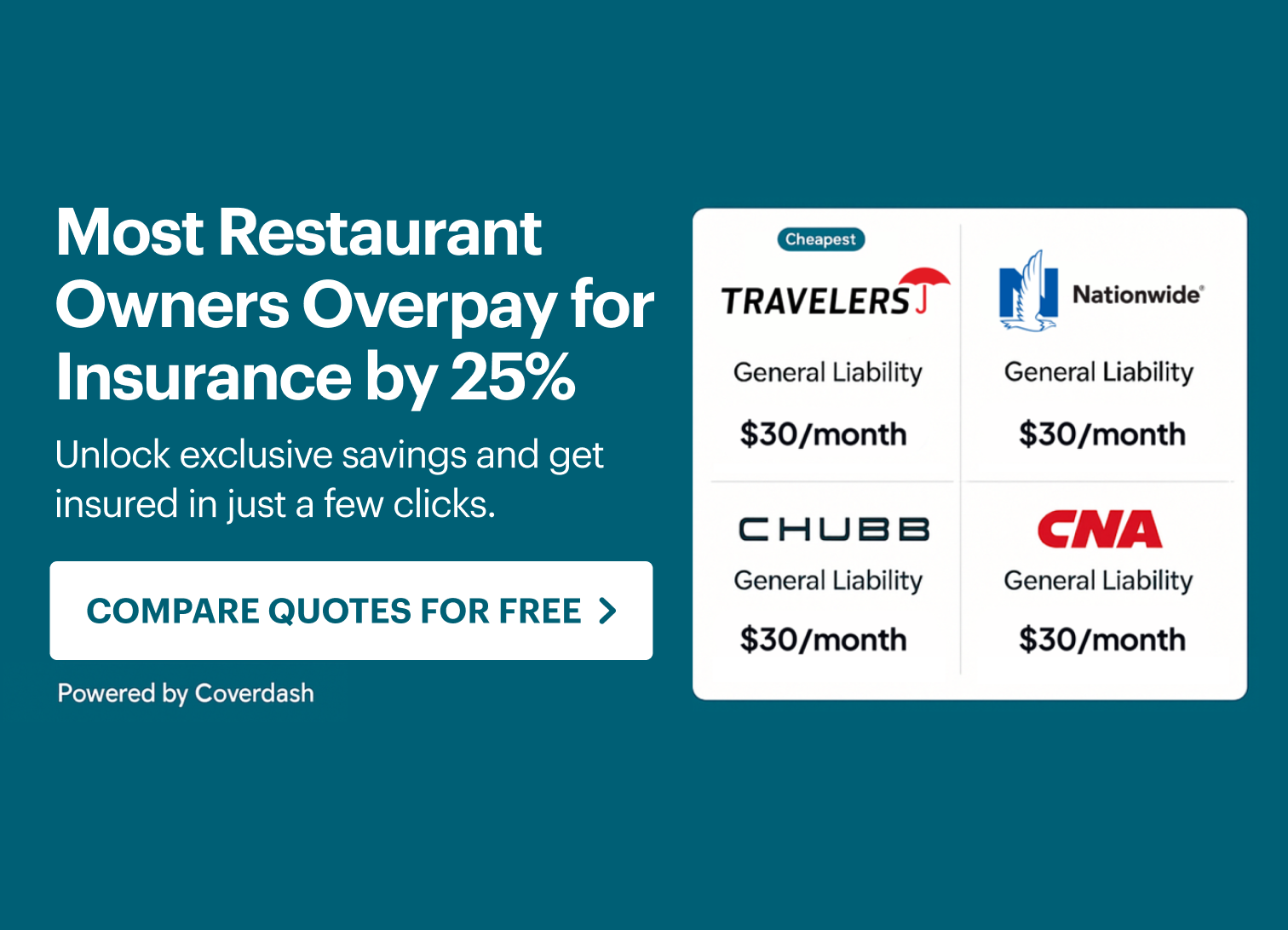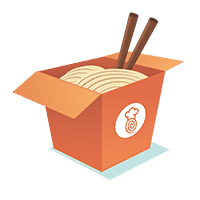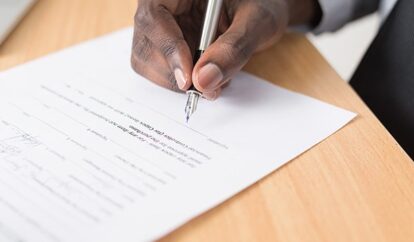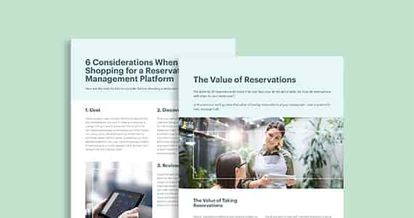It’s inevitable. Something will happen where you will say to yourself “I’m so glad my insurance covers this”. It may not be the sexiest topic, but it is a necessary one to make sure you know how to protect yourself and your restaurant from lawsuits and claims.
Here’s a list of things that may keep you up at night as a restaurant owner:
- What if my fryer causes a grease fire and burns the place down?
- What if my food makes people sick?
- What if a drunk customer injures another person and I’m blamed for overserving?
If you get the right insurance for your restaurant, you won’t need to worry about these things at all (or maybe just less).
Restaurants do a lot, so they need a lot of insurance to protect them. But at the same time, there is a lot of insurance restaurants don’t need – so how do you make sure you’re getting the right coverage?
In this section we’ll walk you through the types of insurance your restaurant will need to cover, including:
- General liability insurance
- Property insurance
- Liquor liability insurance
- Workers’ compensation
- Business interruption insurance
- Food contamination insurance
- Automobile liability insurance
note: policy costs will vary significantly from one restaurant to the next based on location, sales, and a variety of other factors. talk to an insurance broker in your area to get exact quotes after you’ve reviewed this section and understand your restaurant’s insurance needs.

Types of Restaurant Insurance Coverage
Before getting restaurant insurance, make sure you know the basics about what kind of insurance does a restaurant need your business. When you’re sourcing insurance quotes, you’ll need to know:
- Square footage of your location
- Type and age of building
- Type of fire and security system
- Projected sales and number of customers
- Value of inventory, equipment, and technology
- Number of employees
- Equipment in your restaurant
Note that there is no real average for types of insurance but rather average rates for certain industries. Your premiums will be based on your coverage, and you could pay as little as $500 per year for insurance. But this will depend on your needs as a business owner (and how well you want to sleep at night).
Here’s what a restaurant will generally need for insurance coverage.
General Liability
- Average annual premiums: $500–$6,000
- Average deductible: None
Protects your business in the event that someone is injured on your property. GL insurance may also cover copyright infringement lawsuits, damaged reputations, property damage, and costs related to foodborne illnesses.
Property Insurance
- Average annual premiums: $1,000–$2,500
- Average deductible: $1,000
Covers kitchen equipment, furniture, buildings, and other property you own as a restaurateur. If you are leasing your space, the owner of the building may already have property insurance – but in this case, you would still be in charge of insuring the contents within the property.
Note: Make sure you understand exactly what your property is covered against. Are you covered against fires, earthquakes, and flooding? Insurance coverage varies by provider, so make sure you understand exactly how your property is protected.
money-saving tip: some insurance providers also offer business owners’ policies, which combine general liability and property insurance. make sure to work with an insurance provider in your state who covers other restaurants, as they may have better packages than some standard providers.
Liquor Liability
- Average annual premiums: $400–$3,000
- Average deductible: None
Protects your business in the event that an intoxicated customer commits a crime, injures someone, or damages property.
Workers’ Compensation
- Average annual premiums: $2.25 per $100 of payroll
- Average deductible: None
Protects your employees from the expense of work accidents and illnesses and lost wages. Restaurants are required by law to purchase this insurance. Most policies also come with Employer’s Liability Insurance, which specifically relates to legal costs associated with a workers’ compensation lawsuit.
Business Interruption Insurance
- Average annual premiums: $750–$10,000
- Average deductible: $1,000
Protects your business against closure for reasons of fire, hail, windstorm, vandalism, equipment damage, etc.
Food Contamination Insurance
- Average annual premiums: $1,800
- Average deductible: None
Food contamination insurance is coverage specifically designed to help a business owner recoup the costs associated with spoiled or contaminated food in the event of a power outage.
Automobile Liability Insurance
- Average annual premiums: $1,200–$2,500
- Average deductible: Varies
If your restaurant owns vehicles for deliveries or event catering, you’ll need commercial auto insurance to protect you against the medical, legal, and repair costs from a car accident.
Life Insurance
- Average annual premiums: $300–$24,000
- Average deductible: $1,000
Your life insurance costs are influenced by age, health, gender, occupation, and where you live. Every business owner needs life insurance to shelter their loved ones from possible expenses related to your business in the event of death. You will also want to ask your business partners if they have life insurance policies as well.
Restaurant Insurance Requirements
So you know you need several types of insurance so you can sleep at night – but what’s actually required by law? Many states and provinces have their own restaurant insurance requirements, but there are some general consistencies across the US and Canada you should know to make sure you’re compliant.
Required in the U.S.
- Workers’ compensation
- Unemployment insurance
- Automobile liability insurance
Required in Canada
- Workers’ compensation
- Employment Insurance
- Automobile liability insurance
Another thing you also need to be aware of is payroll taxes for your employees.
4 Tips for Buying Restaurant Insurance Coverage
Now that you know what you need for insurance, here are 4 quick tips to keep in mind when researching insurers, sourcing quotes, and buying restaurant insurance.
- Start sourcing quotes when you sign your lease
Your insurance quotes will depend largely on the details of your space, so you won’t be able to source insurance quotes until your lease is a done deal. But as soon as you’ve signed your lease and you can extract the information you need to start shopping for insurance policies, you’ll need to get started.
- Gather your information
The following information will determine the cost of your insurance policies, so make sure to have it ready when you’re looking for quotes.
- Location in square feet
- Volume of sales
- Type of property
- Activities and entertainment
- Hours of operations
- Alcohol sales
- Sales projections
- Levels of coverage
- Lease details
- Use insurance companies that specialize in your niche
While there are many insurance providers who specialize in restaurant insurance, there are even more who specialize in niches within the restaurant industry. You’ll want to do some thorough research to find a provider who specializes in providing insurance for your concept, as they’ll be more knowledgeable about the many details of insuring a restaurant like yours. Here are some examples of insurance companies that specialize in providing coverage for
- EverGuard Insurance: night clubs, taverns, and bars
- Berkshire Hathaway GUARD Insurance: delis and neighborhood restaurants
- Plymouth Rock: commercial auto insurance – food trucks
When you’re assessing insurance companies, ask them how many restaurants like yours they insure. Ask them for five referrals and contact those restaurants to ask about their policies.
- Bundle carefully
While it’s tempting to bundle several policies into one for the sake of convenience, be careful to examine the quality of bundled insurance packages. In order to offer cheaper, bundled packages, some insurance policies cut corners and aren’t as fulsome as individual packages. So make sure to compare any bundled packages you’re considering to those that aren’t bundled, to ensure coverage standards and specifications are the same for each.
Conclusion
While the process of obtaining insurance for your restaurant may seem tedious and overwhelming, it’s a crucial part of making sure your business is protected against … our sometimes cruel world. Natural disasters, human error, and lawsuits are sometimes just a reality for business owners, and the right insurance will allow your business to bounce back quickly in the face of a worst case scenario.
Sign up for our free weekly TouchBistro Newsletter





